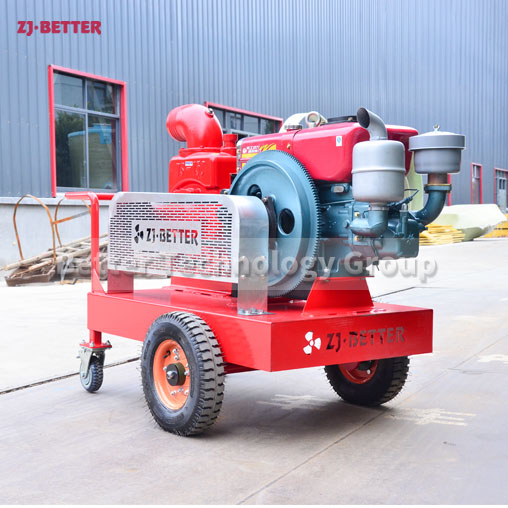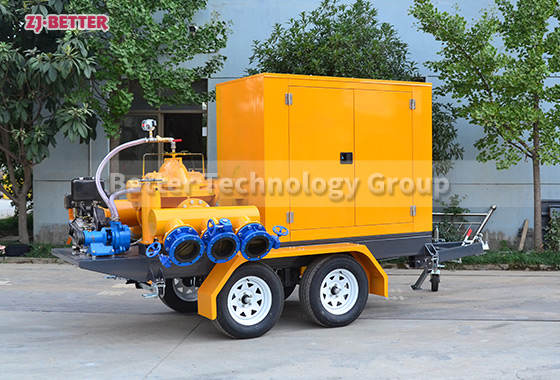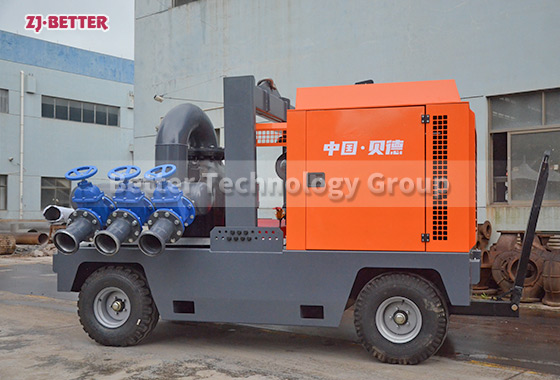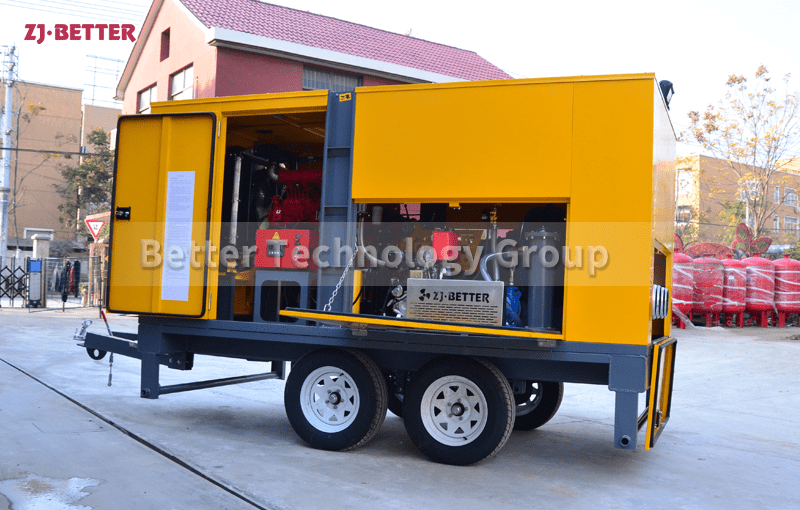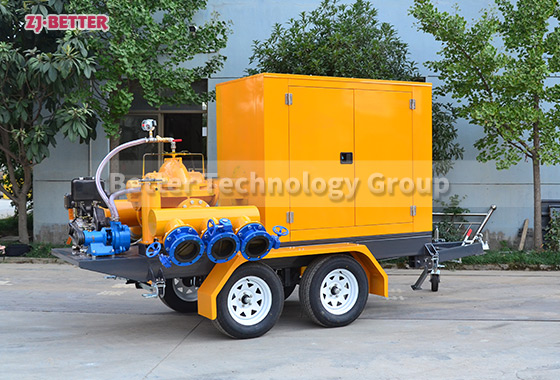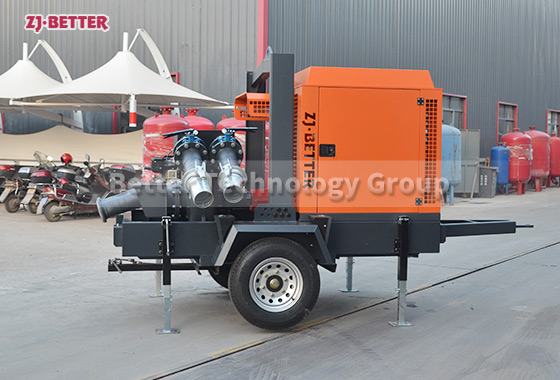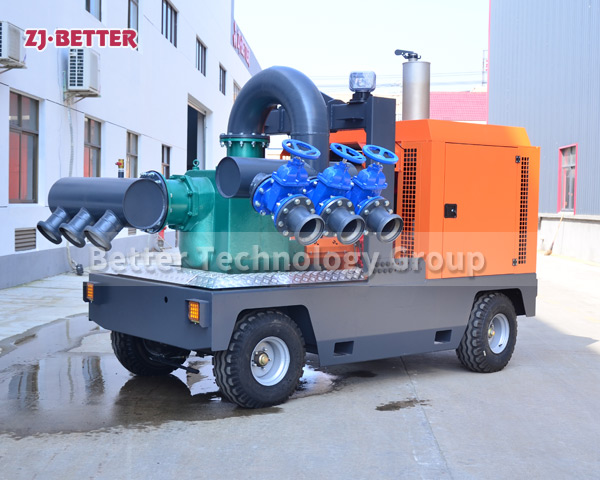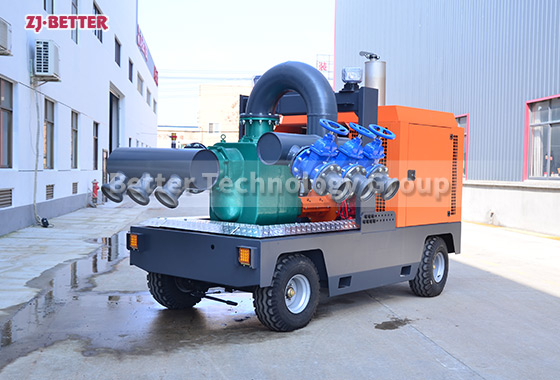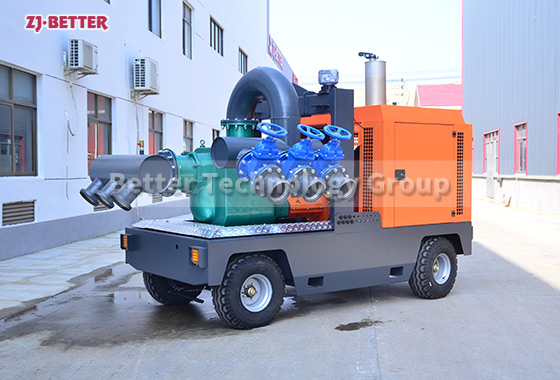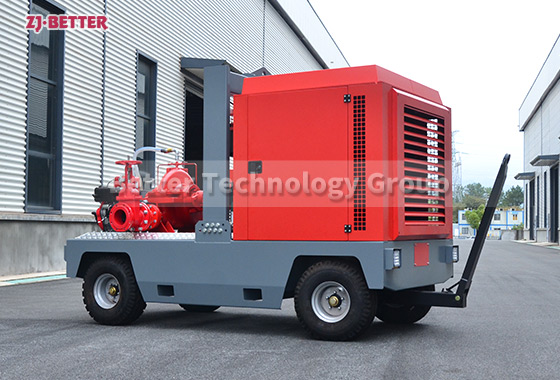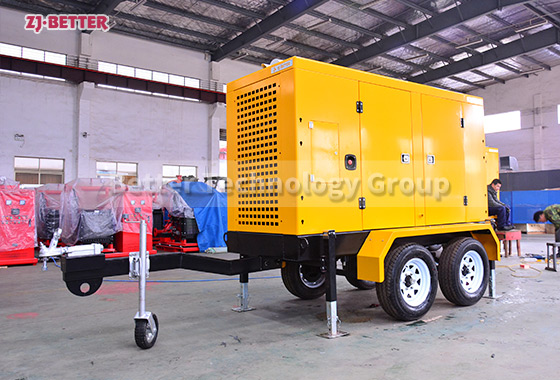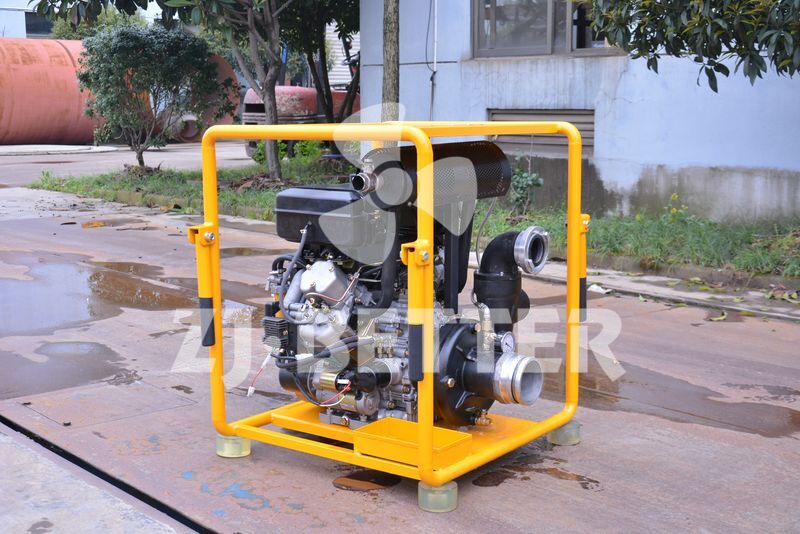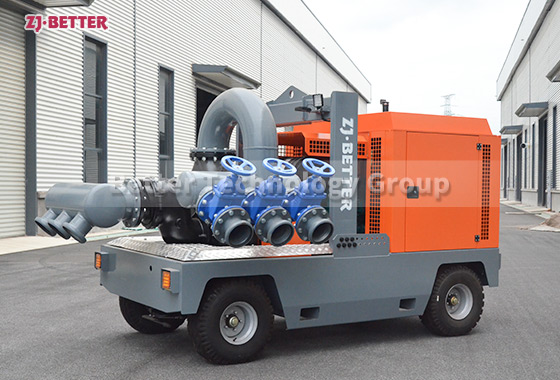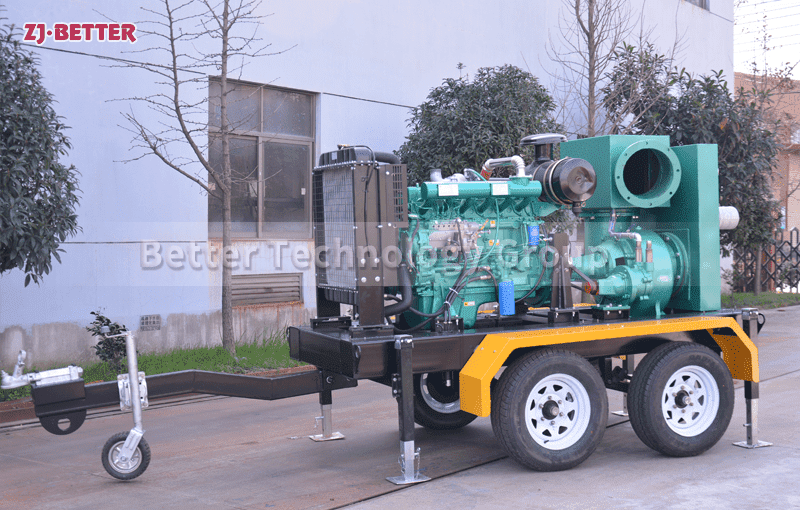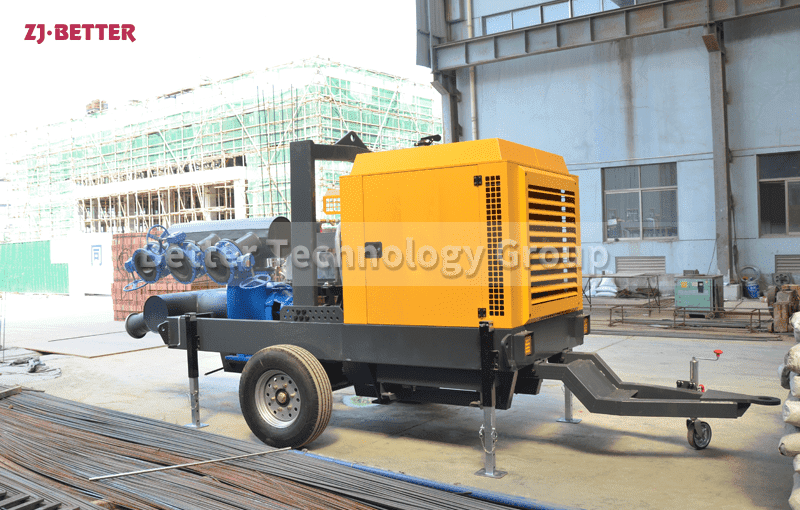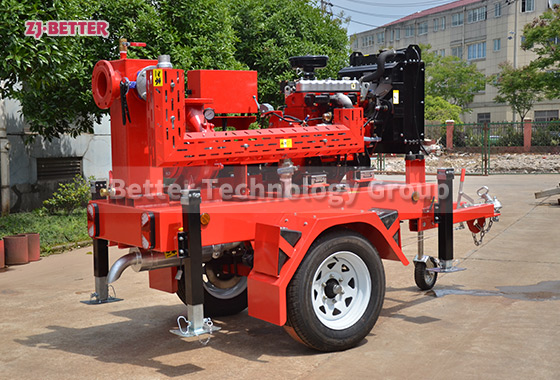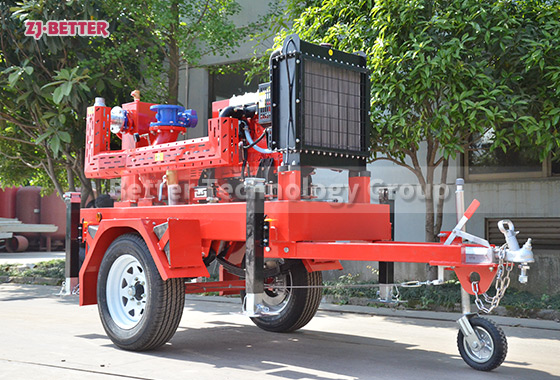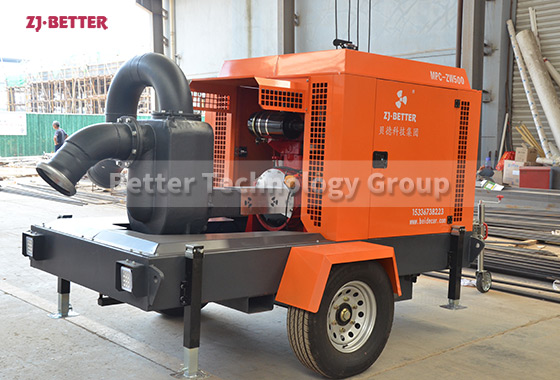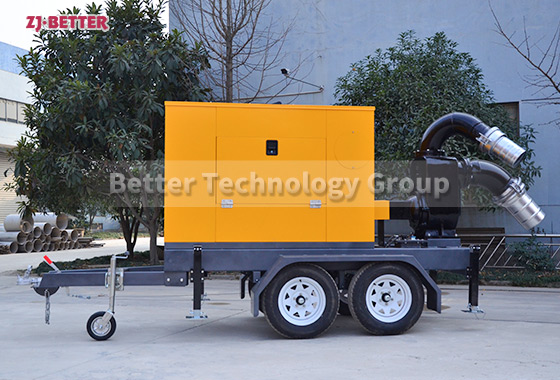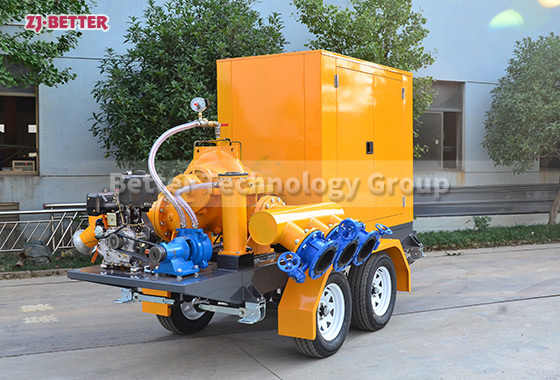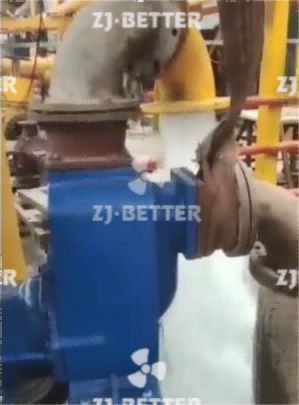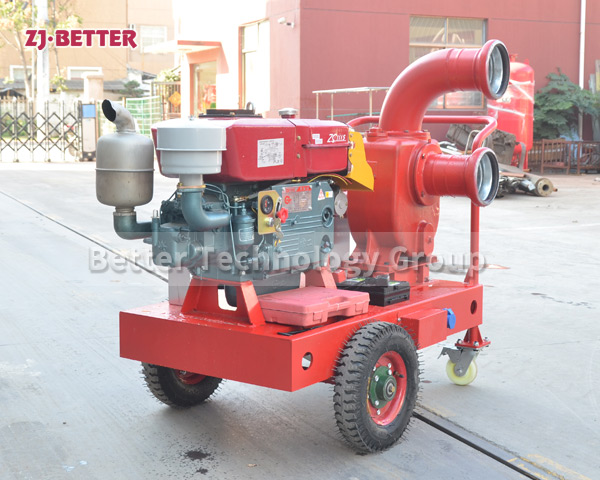Emergency Response Solution – High Performance Mobile Fire Pump System
Discover the advantages of high-performance mobile fire pump systems with powerful flow, reliable diesel engine drive, flexible mobility, and efficient emergency response for fire safety and flood control.
In modern emergency response and fire safety systems, mobile fire pump systems, due to their flexibility, reliability, durability, and efficient water supply, have become the preferred equipment for numerous engineering projects, industrial sites, petrochemical bases, municipal projects, and emergency rescue operations. These high-performance mobile fire pump systems not only address the inability of fixed pumping stations to meet temporary or distributed needs, but also demonstrate significant practical value in a variety of scenarios, including firefighting, flood control and drainage, temporary water supply, and emergency rescue. Compared to traditional fixed systems, their greatest advantage lies in their combination of mobility and efficiency, enabling rapid deployment in diverse and complex environments, significantly enhancing emergency response capabilities.
Mobile fire pump systems typically utilize diesel engines as their primary power source. They offer independent power supply capabilities and are independent of external electricity, enabling efficient operation even during power outages, blackouts, or even a complete power outage. This design is particularly crucial in fire rescue and disaster response scenarios, as power outages are often associated with these situations. Diesel-powered fire pumps ensure a continuous and stable water supply, providing reliable support for emergency response. The equipment typically utilizes a sturdy chassis and a trailer-mounted mobile platform, offering exceptional durability and off-road performance. It can be flexibly moved in complex terrain, such as construction sites, mines, oil fields, ports, and tunnel construction sites, meeting the needs of rapid deployment.
In terms of performance, high-performance mobile fire pump systems offer high flow rates, high head, and strong self-priming capabilities, adapting to various hydraulic conditions. The pump body, designed with wear-resistant materials and a highly efficient hydraulic model, ensures stable flow output and sufficient pressure, enabling the completion of large-scale water supply or drainage operations in a short period of time. Equipped with an automated control system that integrates startup, operation monitoring, alarms, and protection functions, the equipment is simple and intuitive to operate, enabling rapid startup and efficient operation even in short-staffed or emergency situations. Select models also support remote monitoring and intelligent management, facilitating centralized scheduling in large-scale and distributed projects, improving overall operational efficiency.
Beyond firefighting, mobile fire pump systems also play a key role in flood control and drainage. During the rainy season or natural disasters, high-flow mobile pumps can quickly drain accumulated water, effectively reducing the risk of flooding and protecting urban operations and the safety of people and property. Compared to municipal drainage pumping stations, mobile equipment requires no foundation work or complex installation, allowing for immediate deployment and enhanced mobility and flexibility. Furthermore, in locations with stringent fire water supply requirements, such as petrochemical and chemical industries, ports, and power plants, mobile fire pumps, with their powerful power and stable operation, can serve as backup systems or primary equipment, ensuring a secure water supply in all types of emergencies.
The high-performance mobile fire pump system is designed with user-friendly design and safety in mind. The sturdy trailer chassis, equipped with brakes and a tow hook, facilitates connection to a variety of vehicles for rapid transfer and deployment. The unit’s exterior is constructed of weather-resistant steel or a special spray coating, providing protection against rain, dust, and corrosion, making it suitable for long-term operation in harsh outdoor environments. The diesel engine, equipped with efficient cooling and exhaust systems, ensures long-term operational stability while reducing energy consumption and emissions, meeting environmental standards. To enhance operational safety, control systems typically incorporate multiple protection features, such as those for low oil pressure, high water temperature, and abnormal speed, ensuring stable operation even in harsh environments.
From an economical perspective, mobile fire pump systems can help users save significant fixed construction and maintenance costs. Compared to building fixed pumphouses and water supply systems, mobile devices require no complex infrastructure, offer greater flexibility, and extend their reach. A single unit can be reused in different locations, significantly improving return on investment. For construction companies, fire departments, and organizations requiring temporary water supply, this type of equipment not only reduces operating costs but also improves overall emergency response capabilities and service efficiency.
Notably, high-performance mobile fire pump systems are designed and manufactured in accordance with international fire protection standards and regulations, meeting various engineering and fire certification requirements, ensuring global compatibility. This standard-compliant design not only ensures product quality but also enables widespread export, serving projects and customer needs worldwide. In today’s globalized market, mobile fire pump systems with international adaptability have become a key choice for many construction contractors and equipment purchasers.
Overall, the advantages of mobile fire pump systems can be summarized as follows: First, independent power drive ensures stable operation even in power-off environments; second, high-performance pump design provides strong flow and head to meet various operating conditions; third, mobility and flexibility allow for rapid transfer and deployment, adapting to temporary or long-term use in different locations; fourth, automation and intelligent control enhance operational convenience and safety; fifth, cost-effectiveness reduces fixed construction costs and improves equipment utilization; and sixth, reliability and durability enable long-term stable operation in harsh environments. This combination of advantages makes mobile fire pump systems the preferred equipment for emergency rescue and firefighting.
In the future, mobile fire pump systems will become increasingly intelligent and environmentally friendly. With the widespread adoption of the Internet of Things and intelligent control technologies, these systems will gradually implement remote monitoring, automatic adjustment, and data analysis, further improving emergency response speed and operational efficiency. Furthermore, amidst increasingly stringent environmental regulations, diesel engine drive systems will continue to be optimized towards low emissions, low noise, and high energy efficiency, providing strong support for sustainable development and green firefighting. It can be foreseen that this type of high-performance mobile fire pump system will play an increasingly important role in the global firefighting and emergency rescue fields, providing solid protection for various projects and social public safety.




